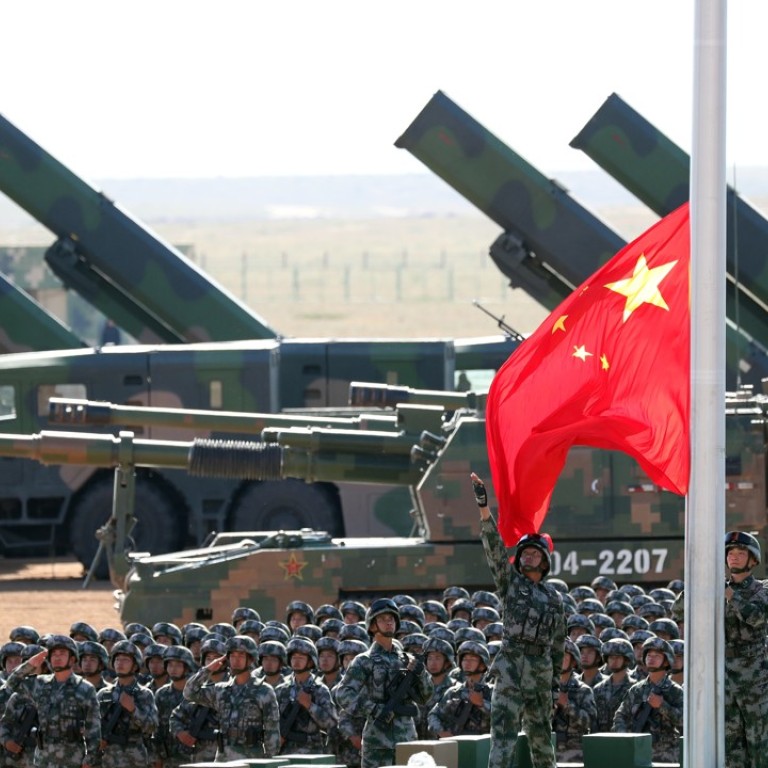
Xi Jinping shakes up China’s military leadership … what changes at the top mean for world’s biggest armed forces
President unveils smaller commission under his chairmanship, consolidating his control of world’s biggest armed forces
Analysts said the appointments further strengthened Xi’s control over the commission, which he heads.
The body will be led by a seven member group, down from the 11 who oversaw its operations previously.
The changes come as Xi has initiated a massive modernisation programme for the country’s military to make it a leaner and more efficient fighting force.
Here are the details of the changes and what it means for the world’s biggest armed forces.
Who has been appointed to the commission?
The new line-up will comprise Xi, two vice-chairmen and four other members.
The generals are all experienced officers who have strongly pledged their loyalty to Xi.
The inclusion in the body of Lieutenant General Zhang Shengmin, the chief of the military discipline inspection commission, suggests the sweeping anti-graft campaign within the military will maintain its momentum, analysts said.
PLA Air Force General Xu Qiliang and General Zhang Youxia – both Xi loyalists – have been appointed commission vice-chairmen.
How powerful is the commission and what is its role?
The commission administers China’s military and paramilitary forces, including the People’s Liberation Army and the People’s Armed Police.
The commission’s chairman is the de facto commander-in-chief of the nation’s armed forces.
The head of the Communist Party is not automatically made commission chairman, but Xi has taken on both roles over the past five years.
The Communist Party has absolute control over the military, hence the commission functions as a state institution and a party organ. Commission members have a rank in the military and a party position.
When and how was the commission set up?
The Communist Party set up its first military commission in 1925, four years after the party was formally created in China. The body’s name has changed over the years as the party and military’s role has evolved, but the commission has continued to wield absolute power over China’s armed forces.
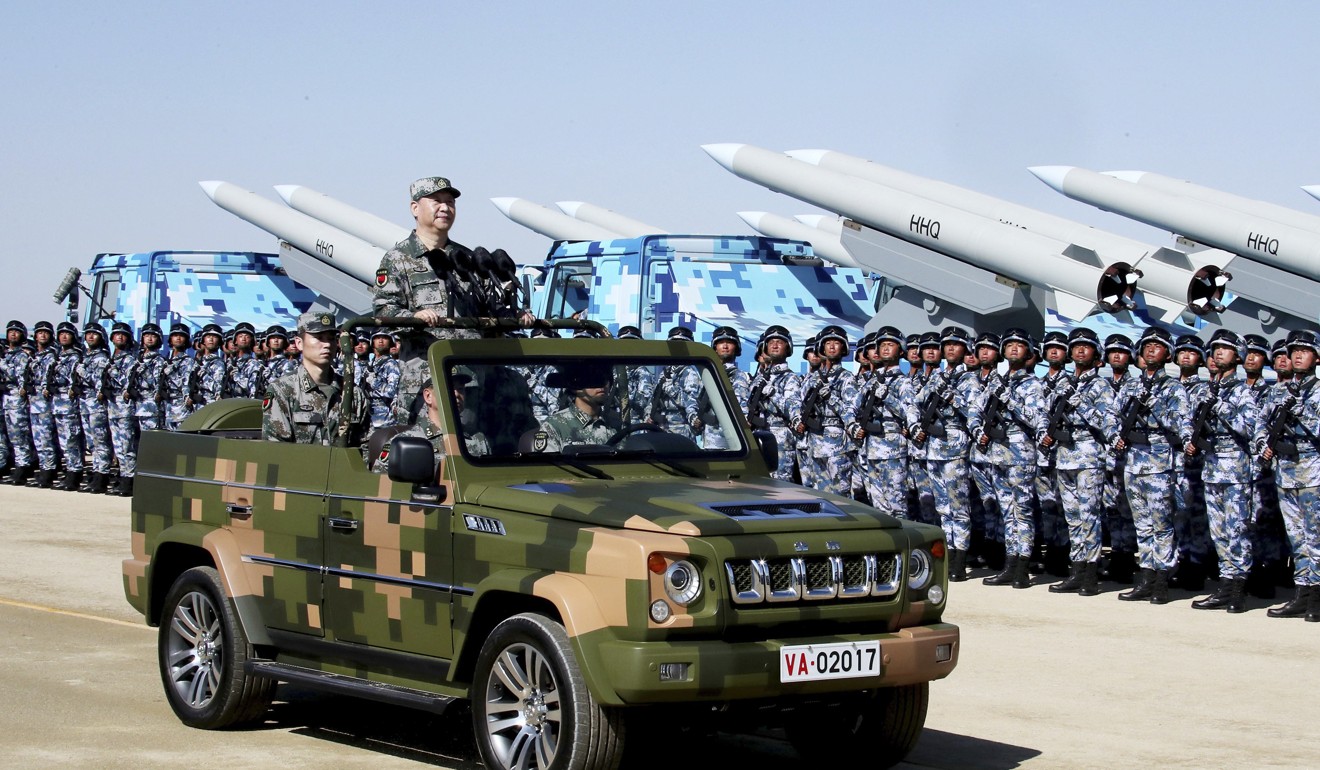
The commission’s size has varied over time. Most members have been high-ranking uniformed generals in charge of every facet of the PLA’s command and operations.
How did Xi tackle corruption during his first term in office?
Xi kicked off a massive anti-graft campaign soon after taking power in 2012. His drive has brought down many senior military officials, including Guo Boxiong and Xu Caihou, who both served as commission vice-chairmen under former president Hu Jintao.
Xu was investigated for alleged graft in 2014, but died from cancer a year later. Guo was investigated in 2015 and jailed for life last year.
The two generals were charged with bribery, but state media later accused them of political misconduct “severely damaging the CMC chair responsibility system”.
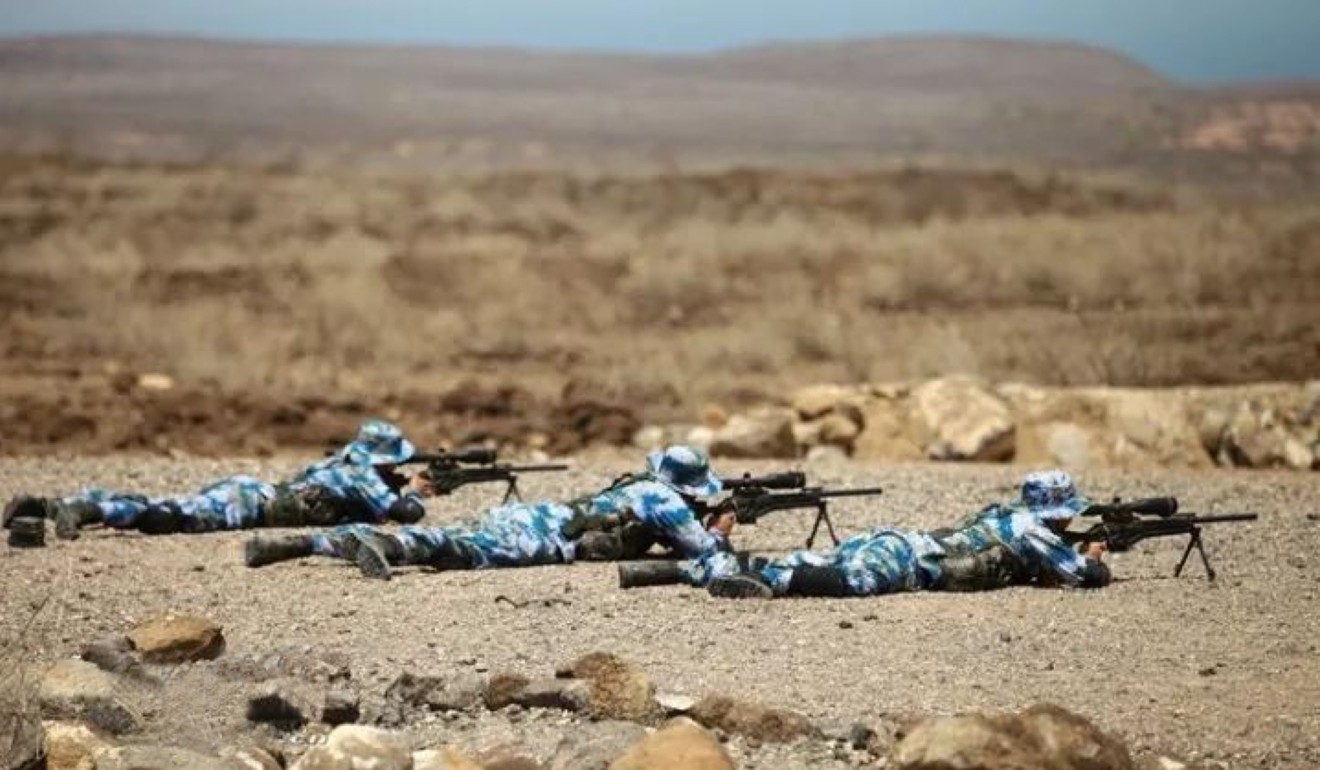
Liu Shiyu, the chief of China’s securities watchdog, went even further, claiming at an event at this month’s party congress that Guo, Xu and other ousted officials such as Bo Xilai, Zhou Yongkang, Ling Jihua and Sun Zhengcai had tried to take over the party.
“They had high positions and great power in the party, but they were hugely corrupt and plotted to usurp the party’s leadership and seize state power,” Liu said.
How has Xi tried to reform the commission?
The commission previously had four departments overseeing the general staff, politics and ideology, plus logistics and armaments, known as the “General Four”.
Xi has centralised the commission’s leadership while delegating responsibility for military operations to theatre commands. A key aim was freeing each force to develop its own capabilities.
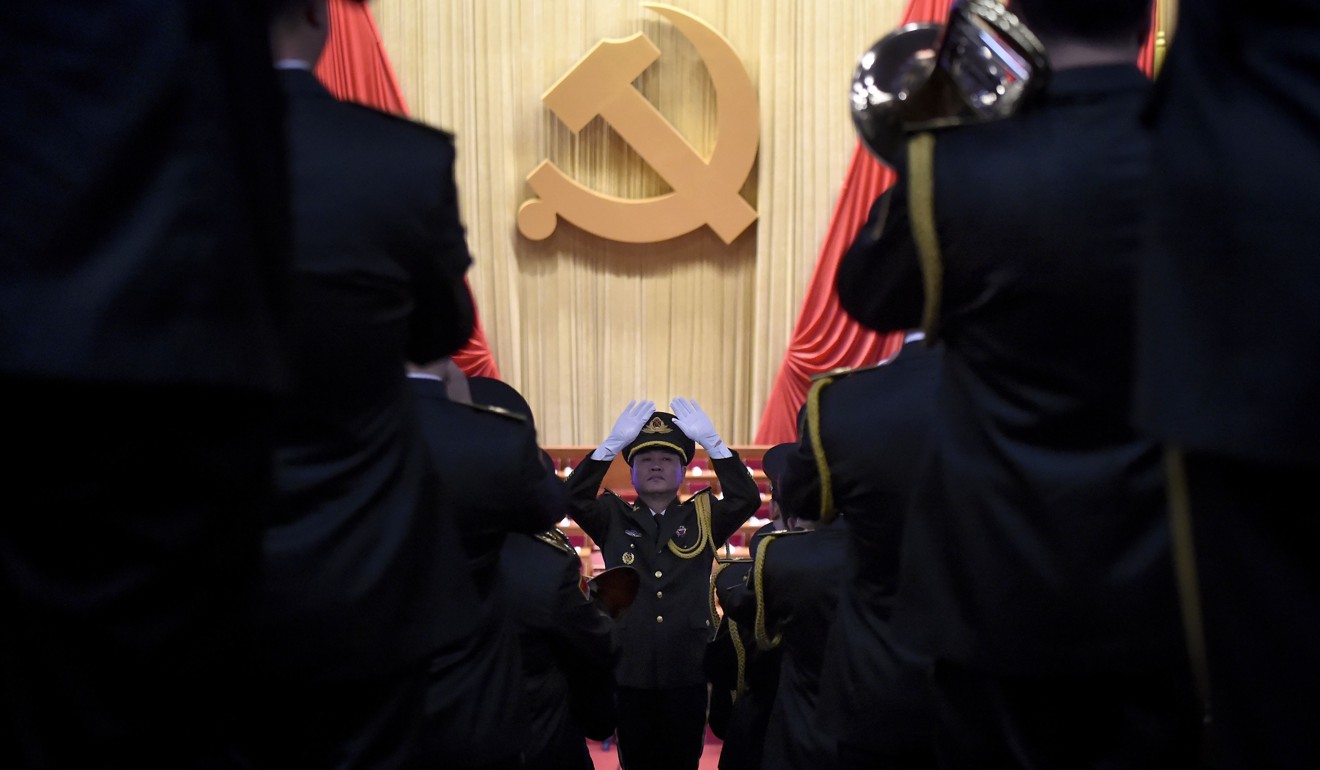
The General Four were scrapped last year and restructured into 15 smaller “administrative departments”. While the new entities were more specific in their functions than their predecessors, they had no final decision-making authority.
They included departments for the general office, joint staff, political work, logistical support, equipment development, training and administration, plus national defence mobilisation.
Three commissions dealt with discipline inspection, politics and law and science and technology. Five directly affiliated offices handled strategic planning, reform and organisational structure, international military cooperation, audits and the agency for offices administration.
Meanwhile, the previous seven military districts were replaced by five regional theatre commands.
A Rocket Force and Strategic Support Force were also created.
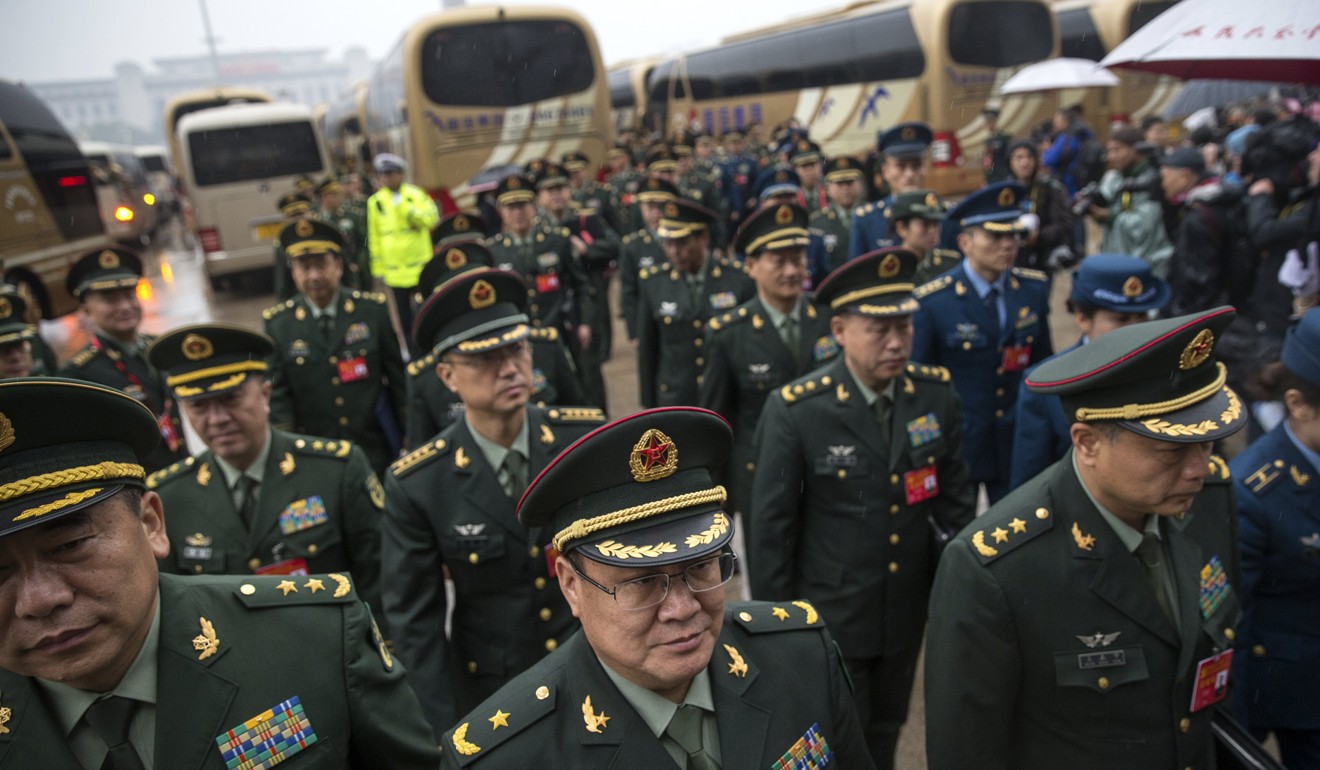
What is the “commission chairman responsibility system”?
A theme of Xi’s military reforms since heading the commission has been re-establishing this system, which stresses the chairman’s dominant role.
Xi convened a military political work meeting in 2014 and the following year an editorial in the PLA Daily, the official mouthpiece of China’s military, explained the system in full.
“The armed forces of China shall be under the unified leadership and command of the CMC chairman,” it read.
“All significant issues regarding national defence and military development shall be decided and finalised by the CMC chairman and the overall work of the CMC shall be presided [over] and taken charge of by the CMC chairman.”

